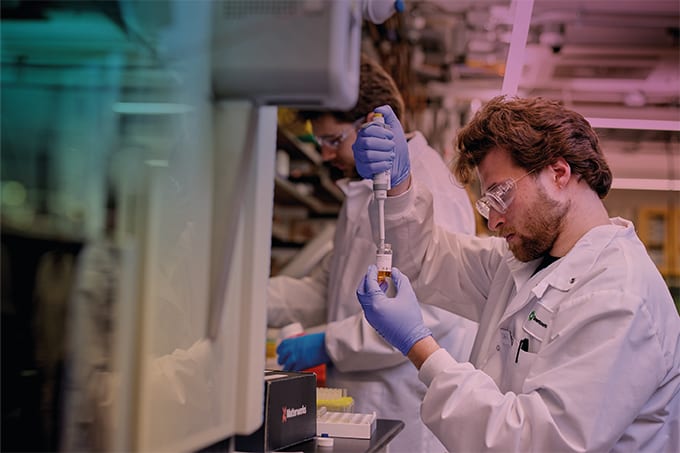SARS-CoV-2 fragments may persist in serum extracellular vesicles (EVs) long after acute infection, potentially providing the first biomarker for long COVID, researchers at the Lundquist Institute and collaborators at Translational Genomics Research Institute (TGen), part of City of Hope, have found.
EVs are nanosized vesicles that shuttle proteins, nucleic acids, and other bioactive molecules between cells, and have previously been shown to carry viral material in other infections. In this study, they emerged as a promising reservoir for remnants of the coronavirus proteome. Detecting such signatures could offer a way to objectively identify long COVID patients – something that has eluded clinicians since the condition first emerged.

“There is a great need for a biomarker for long COVID,” says co-senior author William Stringer. “Without it, you cannot adequately sort patients for clinical trials into the appropriate categories (e.g. Long COVID, Other Diseases, ME/CFS, other post viral syndromes), and the effects of other chronic diseases, (heart and lung). A biomarker will also make interventional trials and medications possible by selecting the correct population.”
The team analyzed EVs from 14 adults with long COVID, detecting 65 peptides mapping to the viral replicase polyprotein 1ab (Pp1ab). To reach that level of sensitivity, they combined discovery proteomics with targeted mass spectrometry: data-independent acquisition first flagged potential SARS-CoV-2 peptides in the EV cargo, which were then confirmed using high-resolution parallel reaction monitoring (PRM). A key peptide (GSLPINVIVFDGK) was ultimately validated in 12 of 14 patients, while absent from pre-pandemic controls.
“The key breakthrough came in when the discovery proteomics identified peptides originating from Sars-COV2 Pp1Ab protein,” recalls co-author Patrick Pirrotte. “While only a few of the peptides were detected in multiple patients, it gave us the impetus to further dig into the patient cohort and leverage PRM to improve our sensitivity.”

Clinically, the findings could shift how long COVID is defined and diagnosed. “This work highlights that there is still a lot to learn about how these viral particles get processed in our body long after a patient is considered COVID negative as per current standards,” says Pirrotte. “The residual viral proteome may influence our immune response and needs to be investigated further to understand underlying physiological processes defining long COVID.”
Looking towards the future, the researchers stress that validation in larger cohorts is essential. “Our current dataset was limited to only 14 patients,” notes Pirrotte. “Although our discovery identified several peptides of the SARS-COV2 protein Pap1Ab, only one of the peptides from this rather long protein was confirmed by our targeted assay. Therefore, we would like to replicate the study in a much larger cohort and expand our PRM assay from Pap1Ab to additional protein targets.”




